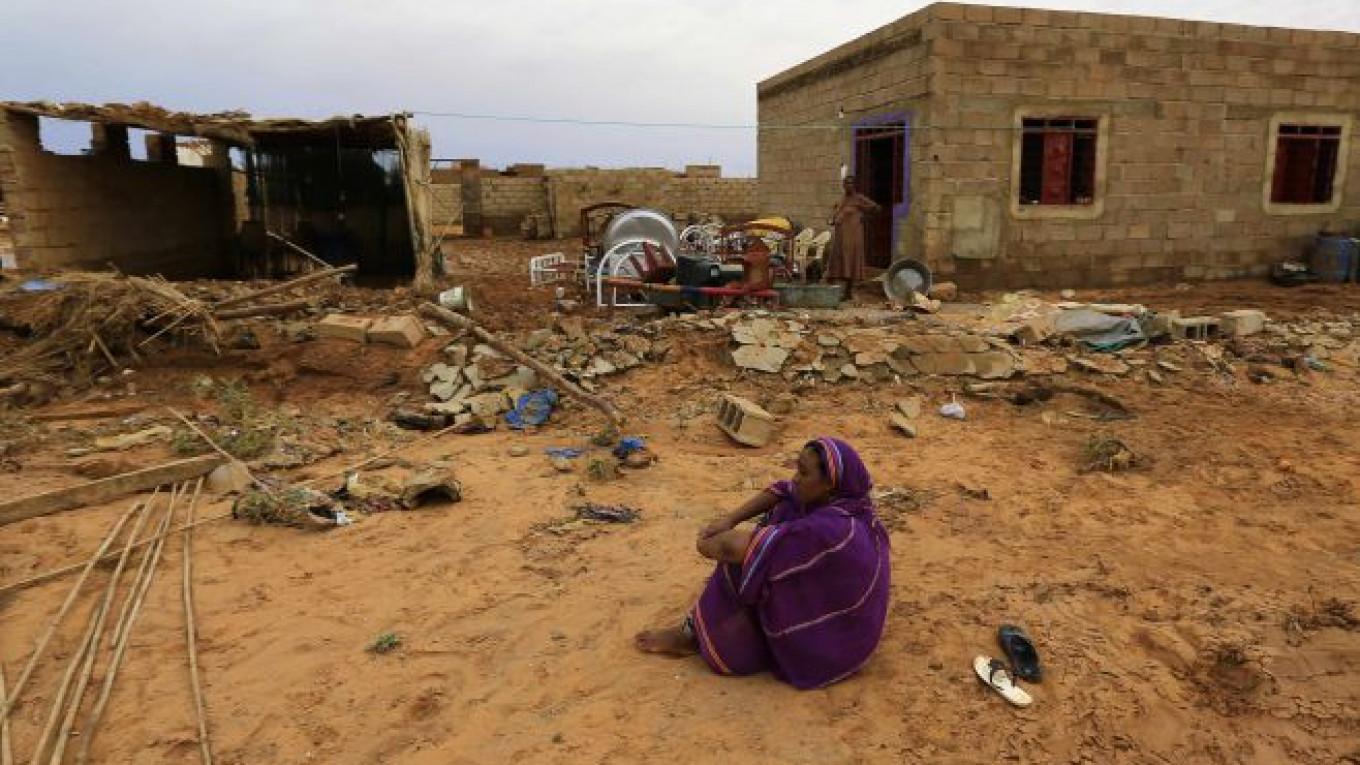A UN peacekeeping helicopter in South Sudan was shot down on Tuesday and three of its crew were killed, Russian airline UTair, which owns the aircraft, said, citing initial information.
The airline said the helicopter, carrying four crew members, had been shot down as it flew over an area that has been a flashpoint during a civil conflict that is now more than eight months old.
"According to preliminary information, the helicopter was shot down with surface-to-air fire," UTair said in a statement.
"One crew member — the second pilot — is alive and has been transported to a hospital ... with minor injuries. Other crew members — commander, flight engineer and flight attendant — were killed."
The United Nations confirmed three crew members had been killed and one was being treated for injuries, but it had no immediate comment on the Russian report that the helicopter, which was on a routine cargo flight, had been shot down.
The UN Mission in South Sudan, or UNMISS, said an investigative team would arrive at the crash site on Wednesday.
A spokesman for the Russian Embassy in Sudan, Artur Safukov, told Russia's state broadcaster Rossiya 24 that all four on board were Russian citizens.
The Mi-8 helicopter crashed about 10 kilometers south of Bentiu, the capital of oil-producing Unity State, which lies in the north of the Africa's newest nation, UNMISS said.
Toby Lanzer, the officer-in-charge of UNMISS, and UTair both said the helicopter, which was contracted to the UN mission, had been flying from Wau in the southwest to Bentiu in the north.
UTair, which said it has been working with the UN since 1991, said it was temporarily halting flying over the area.
Fighting has often flared in Unity State as rivals battle to control vital oilfields. The conflict has pitted soldiers loyal to President Salva Kiir against troops backing the former deputy president, Riek Machar. Despite two ceasefire pacts, fighting has continued.
The rebel delegation at peace talks in Ethiopia issued a statement denying what it said was South Sudanese government accusations that rebel forces brought down the helicopter.
"The area in which the (aircraft) was reportedly shot down is government-held territory, if indeed the aircraft was shot down," the rebel statement said.
The UN force, set up after South Sudan's independence in 2011, has been seeking to protect civilians. At least 10,000 people have been killed in the fighting, which has driven the nation to the brink of a "man-made" famine.
Peace talks in Ethiopia have made little significant progress. The United States and European Union have imposed sanctions on commanders from both sides and regional African states sponsoring negotiations have threatened punitive measures against those impeding talks, but to little avail.
Initially set up to protect civilians as well as carry out other state-building work, the UNMISS peacekeepers were authorized by the UN Security Council in May to focus on protecting civilians and backed the use of force.
UNMISS has an approved strength of up to 12,500 military personnel and more than 1,300 civilian police personnel.
See also:
A Message from The Moscow Times:
Dear readers,
We are facing unprecedented challenges. Russia's Prosecutor General's Office has designated The Moscow Times as an "undesirable" organization, criminalizing our work and putting our staff at risk of prosecution. This follows our earlier unjust labeling as a "foreign agent."
These actions are direct attempts to silence independent journalism in Russia. The authorities claim our work "discredits the decisions of the Russian leadership." We see things differently: we strive to provide accurate, unbiased reporting on Russia.
We, the journalists of The Moscow Times, refuse to be silenced. But to continue our work, we need your help.
Your support, no matter how small, makes a world of difference. If you can, please support us monthly starting from just $2. It's quick to set up, and every contribution makes a significant impact.
By supporting The Moscow Times, you're defending open, independent journalism in the face of repression. Thank you for standing with us.
Remind me later.






